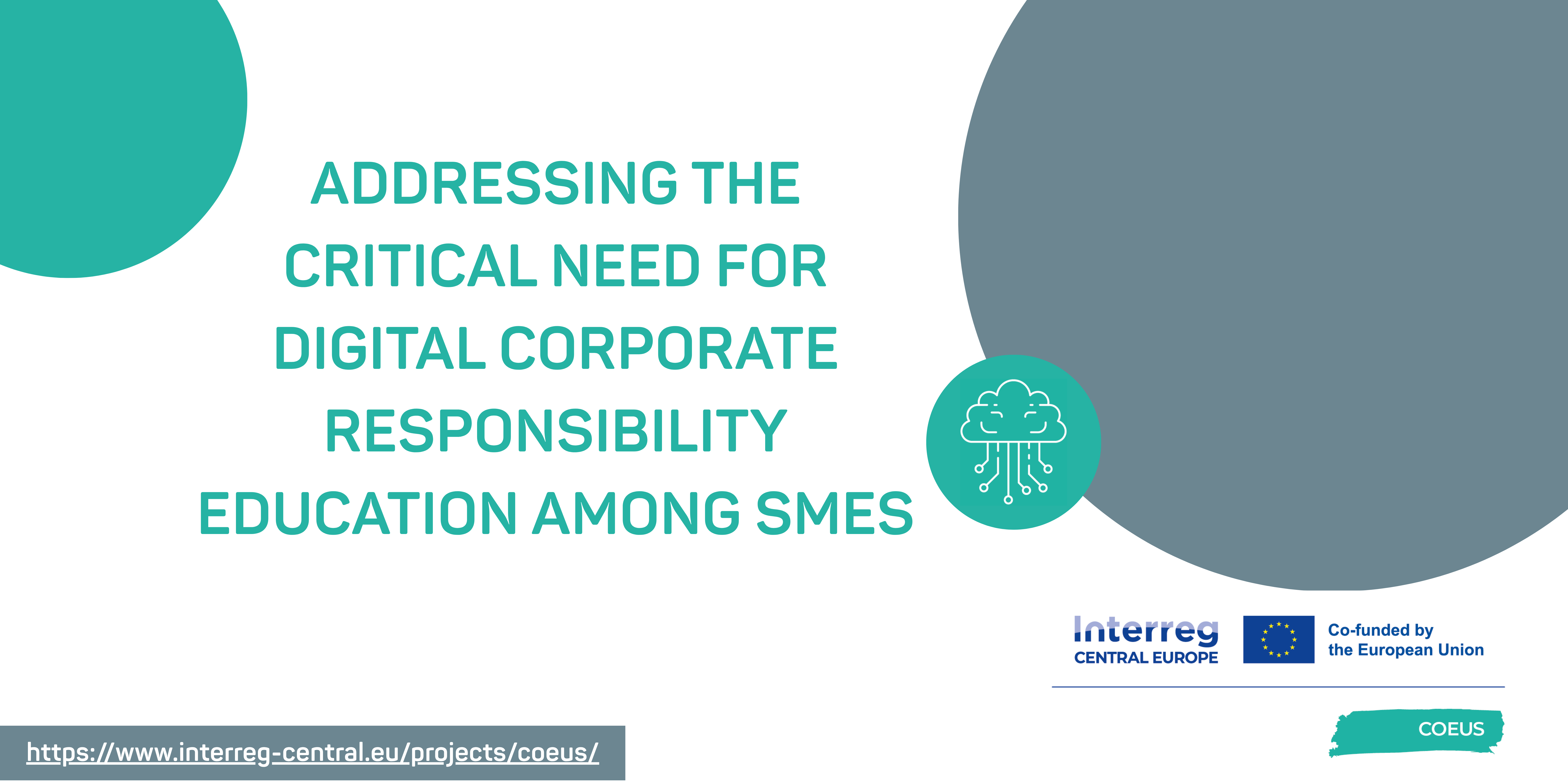In an era marked by rapid digital transformation, the imperative for responsible digital practices within Small and Medium-sized Enterprises (SMEs) has become increasingly evident. The COEUS project—an initiative designed to educate SMEs across Europe on various dimensions of Corporate Digital Responsibility (CDR)—emerges not merely as a beneficial endeavour but as an absolute necessity. This assertion is underpinned by compelling insights derived from a recent survey conducted among SMEs in the participating countries: Italy, Austria, the Czech Republic, Slovenia, Poland, and Croatia. The survey sampled 170 randomly selected SMEs, encompassing sectors from manufacturing to telecommunications and ranging in size from micro to large enterprises.
Why COEUS?
The rationale behind the COEUS project is clear: SMEs represent a substantial portion of Europe’s economic backbone, yet they frequently lack comprehensive training in critical areas of digital responsibility, including cybersecurity, regulatory compliance, digital sustainability, and ethical governance. The Digital Corporate Responsibility Assessment tool used in the survey measured SMEs’ understanding and implementation across these dimensions, assigning an Education Need Score (ENS) from 1 (lowest need) to 4 (highest need).
Key Insights Demonstrating the Necessity of COEUS
Limited Understanding of Corporate Digital Responsibility (CDR)
A notable finding is that the majority of respondents (80 out of 170) exhibit only a basic understanding of CDR, able to articulate its importance only partially. Alarmingly, 44 respondents indicated a limited understanding, underscoring a considerable educational gap. Only 13 SMEs demonstrated comprehensive knowledge. These results highlight a widespread deficit in fully grasping the benefits of responsible digital practices.
Varied Compliance with GDPR and EU Digital Market Regulations
Although most SMEs report good to basic compliance with the General Data Protection Regulation (GDPR), only 36 respondents demonstrated a comprehensive grasp. Similarly, EU digital market regulations—such as the Digital Services Act (DSA) and the Digital Markets Act (DMA)—present challenges, with 114 out of 170 SMEs indicating basic or limited compliance. Clearly, many SMEs struggle with deeper regulatory comprehension and implementation, necessitating targeted education.
Cybersecurity Awareness and Incident Response
Cybersecurity remains a critical vulnerability. While 74 SMEs reported a good understanding of cybersecurity threats, only 41 showed comprehensive awareness—leaving many businesses exposed. Alarmingly, 40 SMEs lack any form of incident response plan, indicating a significant preparedness gap. The average education need score for incident response planning stands at 2.81, reflecting moderate to high educational needs.
Sustainability and Environmental Responsibility
Sustainability is notably underserved in SME digital practices. Only 17 SMEs reported comprehensive use of renewable energy, while a staggering 67 use no renewable sources at all. Furthermore, sustainable procurement practices are poorly implemented, with just 21 SMEs fully integrating these policies. E-waste management is also notably deficient, with 105 SMEs neglecting this crucial responsibility.
Ethical Digital Governance
Ethical considerations in digital governance are inconsistently applied. Sixty SMEs reported only basic ethical integration, and 31 have no ethical governance structures whatsoever. This highlights a critical need for education to ensure the comprehensive adoption of ethical standards across SME governance structures.
The Critical Role of Continuous Education
Analysis reveals strong correlations between education and responsible digital practices. SMEs investing in continuous training in cybersecurity, regulatory compliance, sustainability, and ethical governance demonstrate enhanced digital resilience and stakeholder engagement. For instance, SMEs with stronger cybersecurity training exhibit significantly better preparedness, including effective incident response strategies (r = 0.542, p < 0.001) and improved network security measures (r = 0.254, p < 0.001). Regulatory education is also vital, significantly correlating with improved governance and compliance (r = 0.533, p < 0.001).
Conclusion: COEUS—An Indispensable Initiative
The data unequivocally supports the critical necessity of the COEUS project. SMEs across Europe show substantial gaps in understanding and implementing responsible digital practices, significantly risking their operational resilience, regulatory compliance, environmental responsibility, and ethical governance.
COEUS is, therefore, more than an educational opportunity—it represents a foundational investment in the future sustainability, compliance, and ethical digital conduct of European SMEs. By addressing the urgent educational needs outlined in the survey, COEUS empowers SMEs not only to survive but to thrive responsibly in a digitally interconnected global marketplace.
